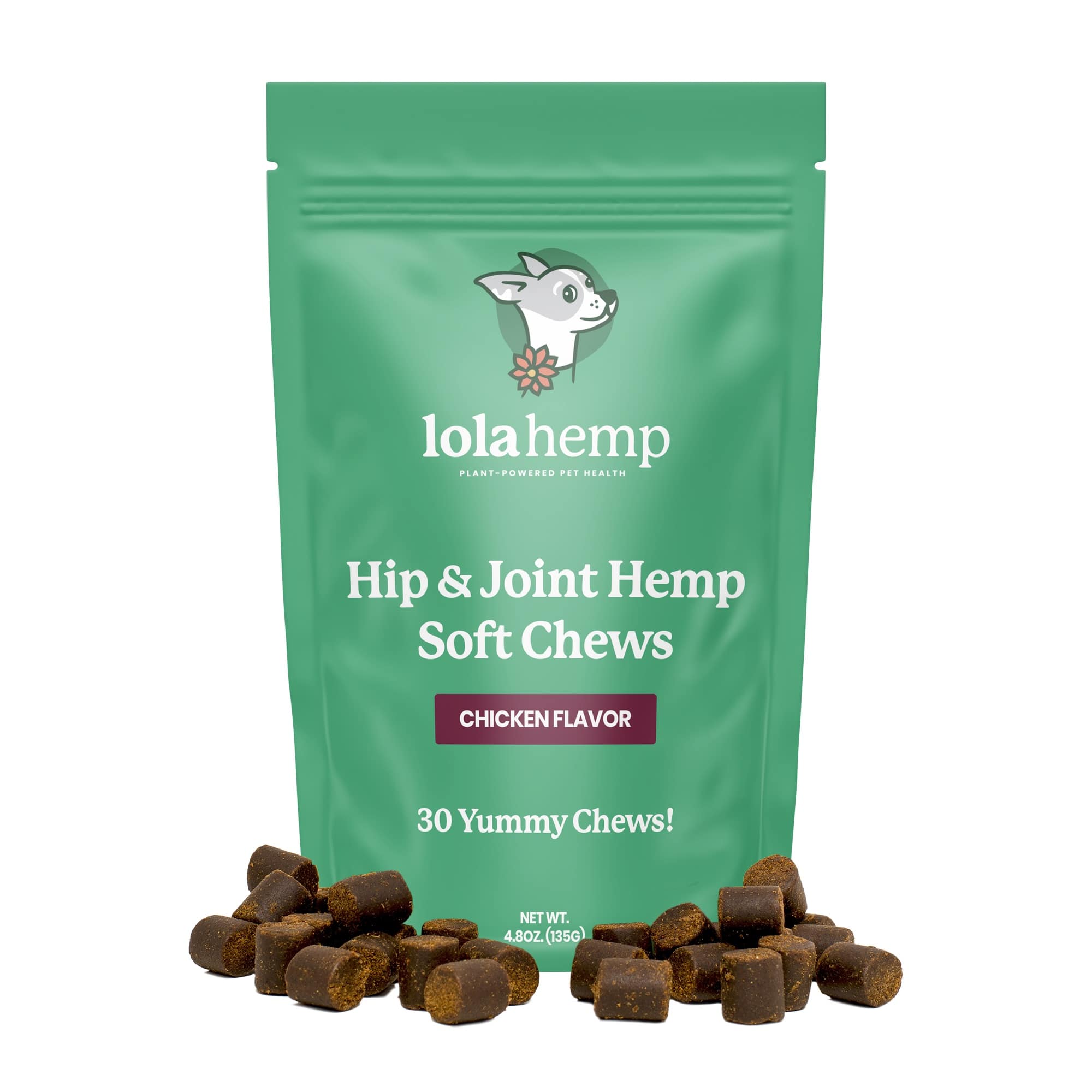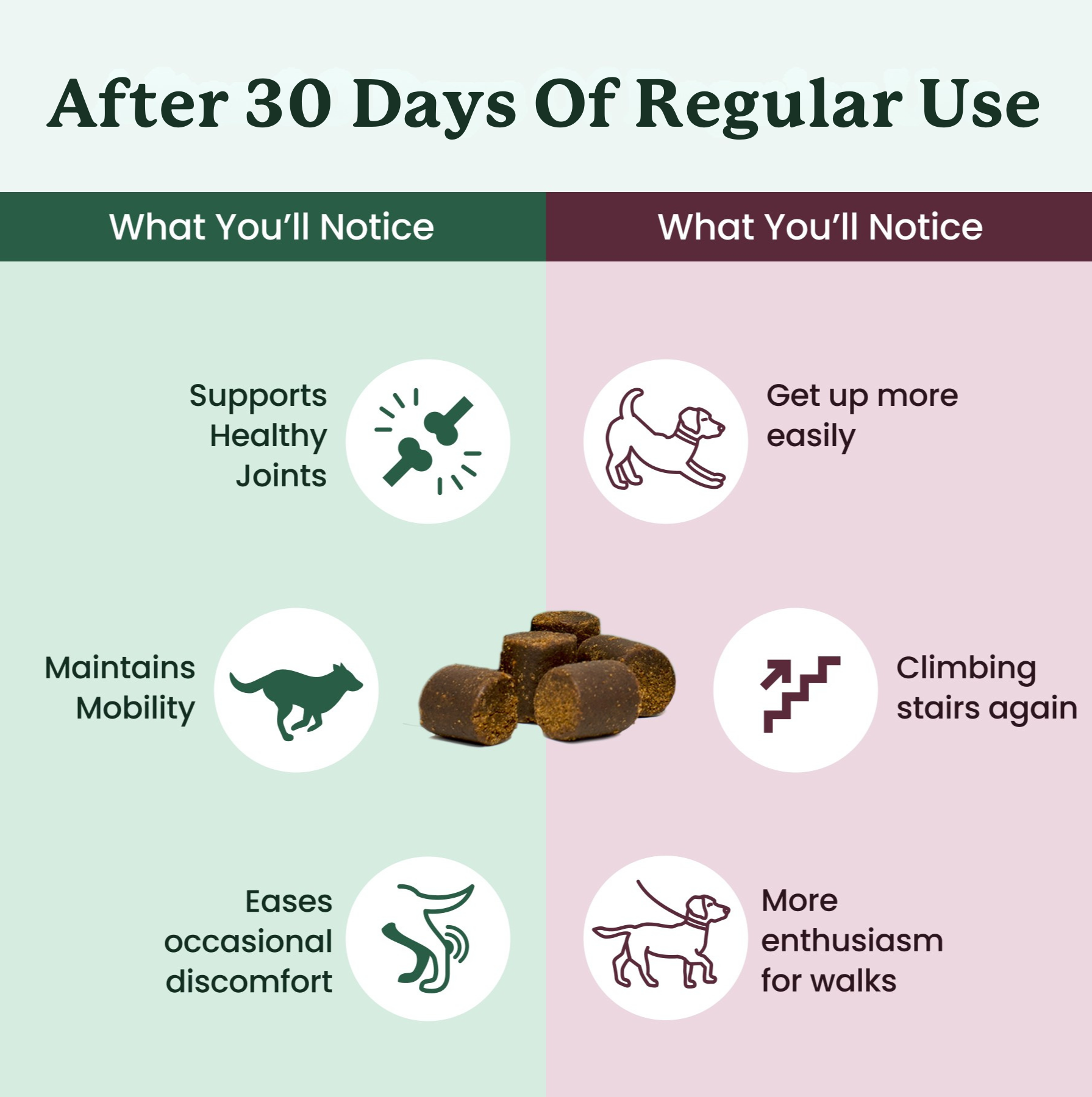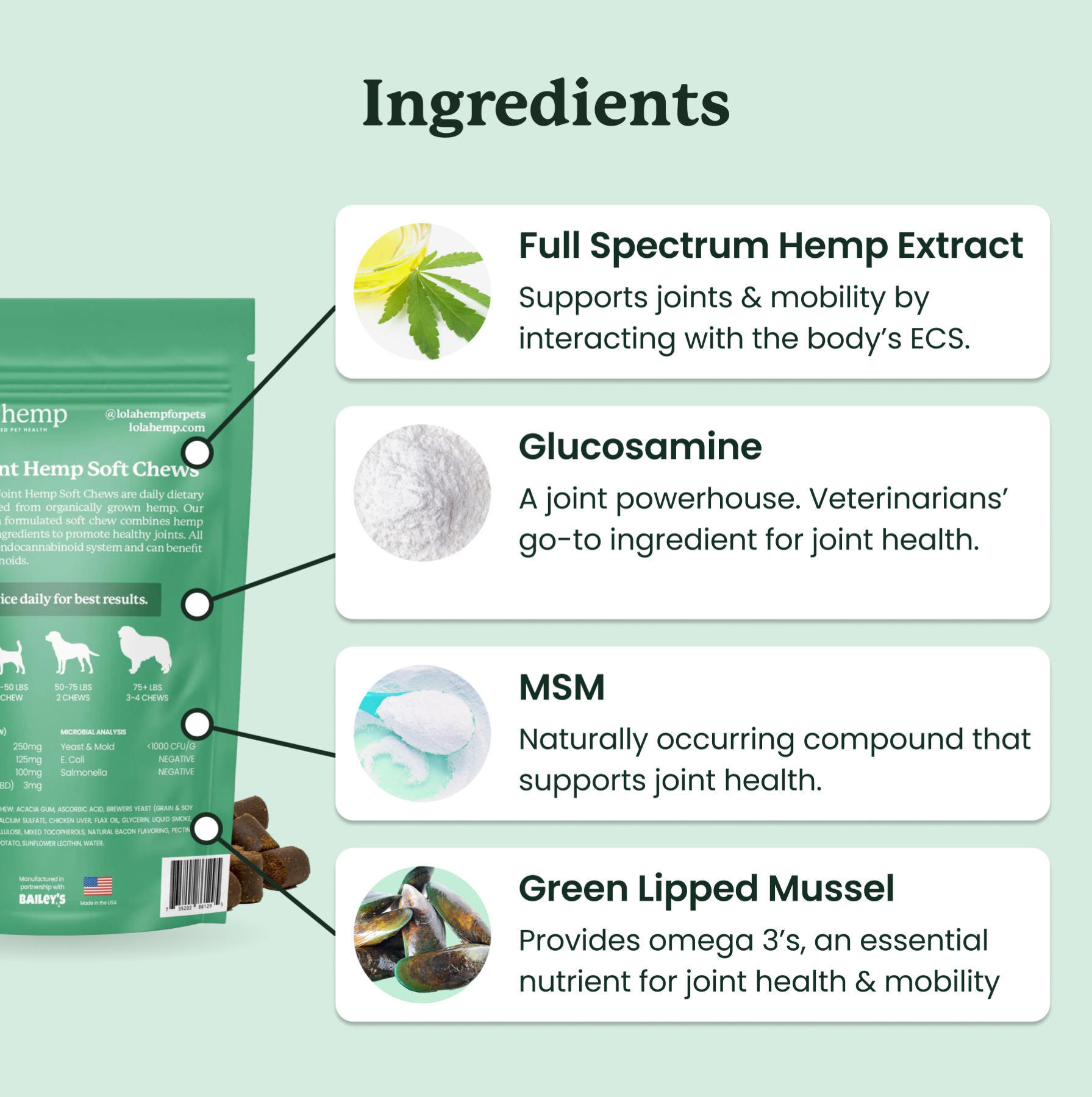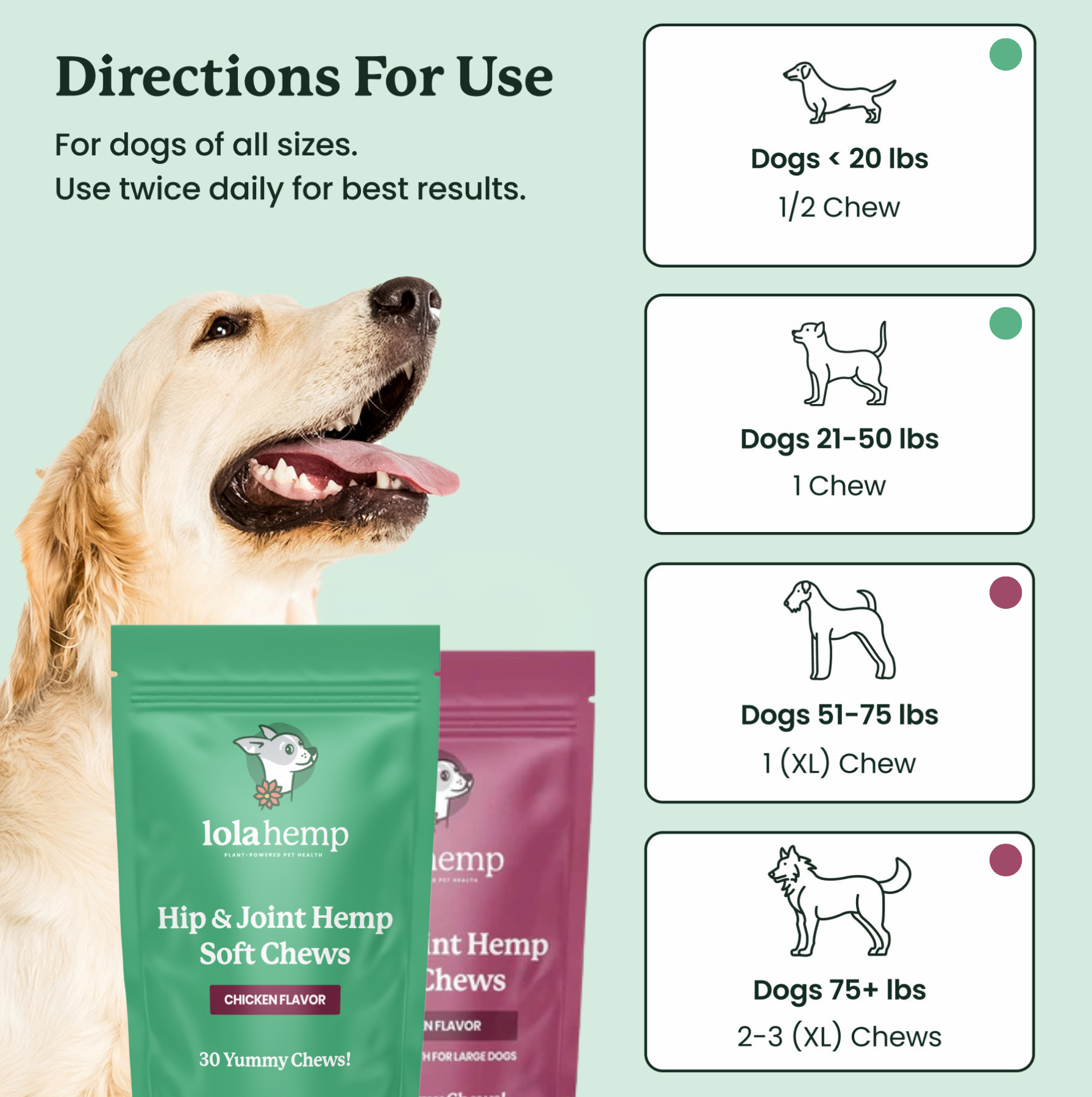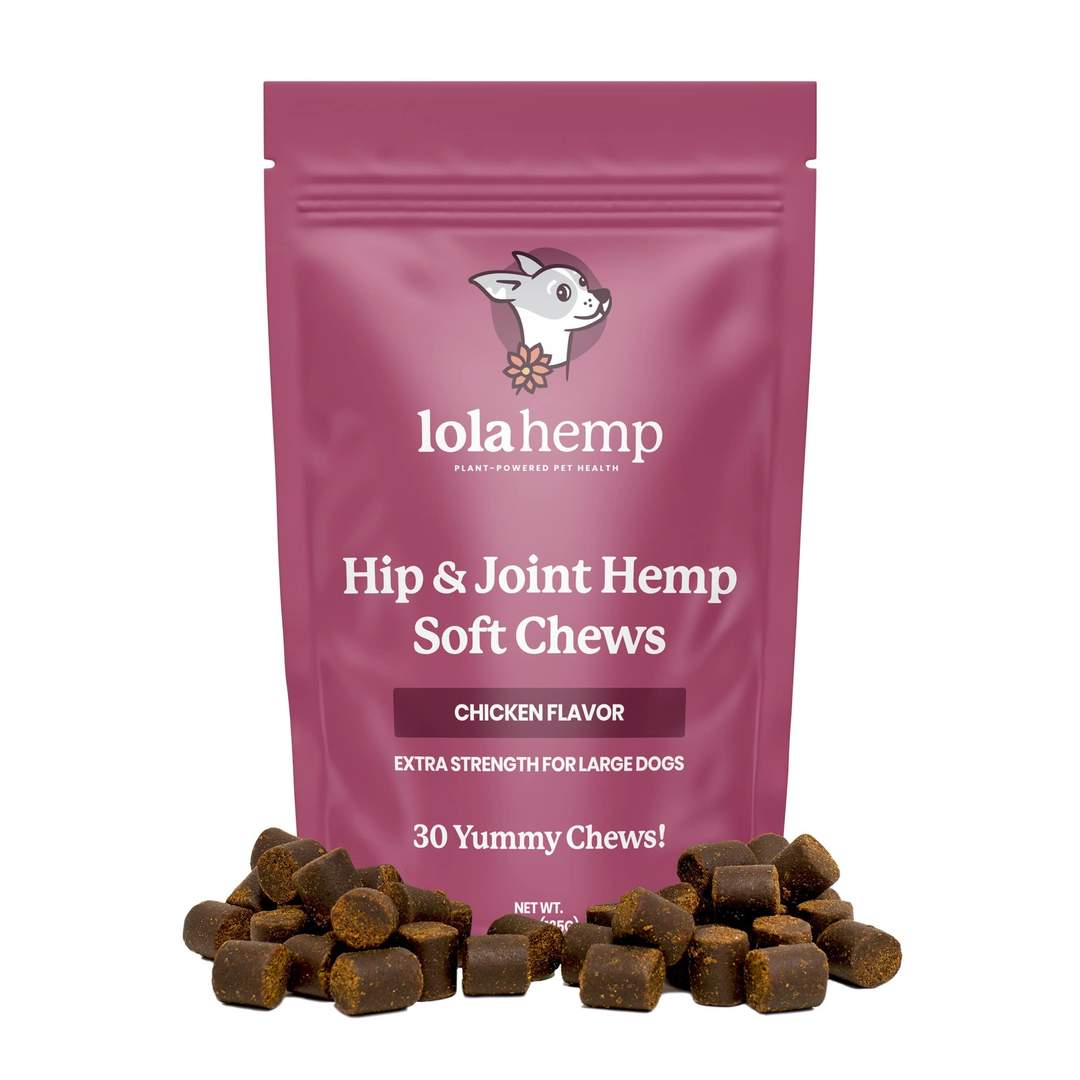Natural supplements can be helpful when supporting your dog with arthritis. It’s best to have background information and talk to your veterinarian before using products like natural oils for dogs, since more research is still needed for experts to use them confidently.
For Starters, What Is Arthritis?
Arthritis refers to inflammation, pain, and stiffness in the joints. It can affect one or multiple joints and involves the gradual breakdown of cartilage, fluid buildup, and thickening of connective tissues. This degenerative condition develops slowly and tends to worsen with age or repeated stress on the joints.
Arthritis in dogs can be caused by injury, infection, poor joint alignment, or congenital orthopedic conditions. Larger breeds, older dogs, and overweight pets are at higher risk, though it can appear in dogs of any size or age.
Natural Arthritis Remedies for Dogs
There are many ways to help a dog living with arthritis. The following focuses on natural joint supplements that may support comfort and mobility, along with a few complementary approaches you can discuss with your veterinarian.
Joint supplements can be purchased over the counter or prescribed by your veterinarian. These products are designed to support cartilage health and promote overall joint function.
Always choose high-quality supplements based on your veterinarian’s recommendation. Look for certification from the National Animal Supplement Council (NASC) and companies that conduct quality control testing. Avoid products with artificial additives or poor transparency about their ingredients.
Natural Supplements for Dogs With Arthritis
- Glucosamine hydrochloride – an amino sugar that helps maintain cartilage structure and flexibility. It is often started with a loading dose, then continued at a maintenance level long term.
- Chondroitin sulfate – works alongside glucosamine to help protect cartilage from enzymes that can break it down.
- Methylsulfonylmethane (MSM) – a natural compound that may support a healthy inflammatory response and joint comfort.
- Green-Lipped Mussel – a marine source of omega-3 fatty acids like EPA, DHA, and ETA that may promote joint lubrication and flexibility.
- Omega-3 Fatty Acids – found in fish oils, these essential fats may support joint comfort and mobility. Because dosage varies, always check with your vet before supplementing.

[pictured above: Lolahemp hip & joint hemp chews with glucosamine, MSM, and green-lipped mussel]
Other Natural Joint Supplements for Dogs
- Boswellia serrata – a tree extract that may help maintain normal joint function and support comfort.
- Avocado Soybean Unsaponifiables (ASUs) – plant compounds that may support cartilage integrity and joint flexibility.
- Green Tea Extract – a natural antioxidant source that may help the body respond to oxidative stress.
- Eggshell Membrane – naturally contains glucosamine, chondroitin, collagen, and hyaluronic acid to help maintain joint tissue.
- Manganese Ascorbate – a trace mineral that supports bone and connective tissue maintenance.
- Hyaluronic Acid – helps maintain healthy joint fluid for lubrication and movement.
- SAM-e – a compound produced naturally in the body that supports cellular health and may help maintain normal joint and liver function.
- Turmeric (Curcumin) – a spice with antioxidant properties. Studies in dogs are limited, so discuss with your vet before use.

[pictured above: turmeric root and powder — not FDA approved and should be discussed with your veterinarian]
How Can I Help My Arthritic Dog?
1. See Your Veterinarian First
If you suspect arthritis, or if your dog has been diagnosed, talk with your veterinarian first. They can recommend the best medication, supplements, diet, or therapies for your dog’s individual needs.
2. Know the Signs and Symptoms
Common signs of arthritis include:
- Lameness or limping
- Muscle loss or atrophy
- Joint swelling or warmth
- Reduced activity or reluctance to exercise
- Difficulty standing up or lying down
3. Pain Management
Pain management is crucial for dogs with arthritis. A multimodal approach may include medication, injections, physical therapy, and lifestyle changes—all under veterinary supervision.
- Medications – prescription pain relievers and anti-inflammatory medications as recommended by your vet.
- Adequan injections – injectable joint support that may help maintain cartilage health.
- Stem cell therapy – a regenerative approach your vet may suggest in certain cases.
- Surgery – sometimes considered for advanced arthritis or joint damage.
- Alternative therapies – acupuncture, laser therapy, massage, or hydrotherapy can complement conventional treatment when recommended by your veterinarian.
4. Environmental and Lifestyle Changes
Small adjustments can make daily life easier for dogs with arthritis:
- Provide a comfortable orthopedic bed
- Use ramps to avoid stairs
- Ensure non-slip flooring
- Use harnesses or slings for support
- Keep nails trimmed short
- Maintain a healthy weight and exercise routine
Using natural joint supplements, making household adjustments, and working with your veterinarian on a multimodal plan can help improve your dog’s comfort and quality of life.
Frequently Asked Questions
Are natural supplements safe for dogs with arthritis?
Many natural supplements are considered safe when used appropriately and under veterinary supervision. Always consult your vet before starting any supplement, as quality and dosage can vary between products.
Can CBD oil help dogs with arthritis?
Some pet owners use CBD oil to support joint comfort and mobility. Research in dogs is still limited, so it’s best to discuss potential benefits and proper dosing with your veterinarian.
Do natural remedies replace medication for arthritis?
No. Natural supplements may complement traditional treatments but should not replace prescribed medications. Work with your veterinarian to develop a comprehensive care plan.
What ingredients should I look for in a dog joint supplement?
Look for clinically studied ingredients like glucosamine, chondroitin, omega-3 fatty acids, and MSM. Products certified by the National Animal Supplement Council (NASC) are generally preferred for quality and transparency.
When should I take my dog to the vet for joint issues?
If your dog shows signs of stiffness, limping, or difficulty moving for more than a few days, schedule a veterinary visit for evaluation and tailored care recommendations.

